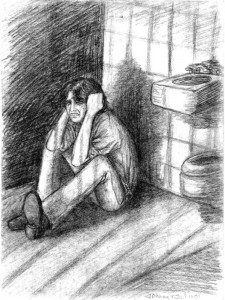Detention and Incarceration Make Youth Worse…
A couple of years ago, Time Magazine published an article titled “Why Juvenile Detention Makes Teens Worse (August 7, 2009).”
The author, Maia Szalavitz, wrote about a study of juvenile detention in Montreal which found “that rather than rehabilitating young delinquents, juvenile detention – which lumps troubled kids in with other troubled kids – appeared to worsen their behavior problems.”
Szalavitz was referencing a 20 year study by researchers Uberto Gatti, Richard Tremblay, and Frank Vitaro which followed 779 low-income youth in Montreal with annual interviews from age 10 to age 17 then tracked their arrest records in adulthood. The researchers’ findings suggest that compared to other kids with a similar history of bad behavior, those who entered the juvenile-justice system were nearly seven times more likely to be arrested for crimes as adults.
Further, those who ended up being sentenced to juvenile prison were 37 times more likely to be arrested again as adults, compared with similarly misbehaved kids who were either not caught or not put into the system. Kids who entered the juvenile-justice system even briefly – for example, being sentenced to community service or other penance, with limited exposure to other troubled kids – were twice as likely to be arrested as adults, compared with kids with the same behavior problems who remained outside the system. Being put on probation, which involves more contact with misbehaving peers, in counseling groups or even in waiting rooms at probation offices, raised teens’ odds of adult arrest by a factor of 14.
Research consistently demonstrates that locking juveniles up doesn’t work – incarceration is no more effective than community-based supervision for youth with serious offenses, and incarceration raises the level of offending for low-level youth offenders, according to seven years of longitudinal research by the MacArthur Foundation. Additionally incarceration is an expensive option that produces terrible results for young people.
Just recently, I came across a very interesting paper by Fagan and Kupchick (which I unfortunately cannot cite from) which concludes that because of the trauma and negative outcomes associated with youth incarceration, it should be used as a last resort. The evidence is clear: Locking youth up is counter-productive, immoral and dumb.

